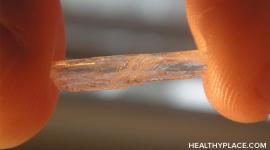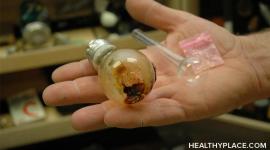Meth Withdrawal Symptoms and Treatment

Meth withdrawal symptoms vary depending on the specific meth user. Meth withdrawal can range from unpleasant fatigue, depression and hunger to debilitating anxiety, paranoia, restlessness and suicidal ideation. While most crystal meth withdrawal symptoms are not lethal, when meth use has been long-term, severe or combined with other drugs, withdrawal can be a more complicated and possibly lethal situation.
Meth Withdrawal: Factors that Influence Meth Withdrawal Symptoms
The physicality of a meth addict will always affect meth withdrawal symptoms, for example, a large man can consume more meth, with few withdrawal effects, than a small woman. However, it is important to remember that meth use rarely happens in a vacuum. Meth addicts commonly use other drugs either to augment the effects of meth or because meth is not available. These additional drugs can hugely impact methamphetamine withdrawal.
Some factors that influence observed meth withdrawal symptoms include:
- Age and body weight of meth addict
- Amount of meth consumed
- How long the addict has been using meth
- Previous meth withdrawals
- Substances consumed with meth
- Other preexisting medical (especially mental illness) conditions
Meth Withdrawal: Crystal Meth Withdrawal Seen in Short-Term Use
Crystal meth withdrawal from short-term use, assuming no complicating conditions, is typically unpleasant but not life-threatening. Medical professionals treat this type of meth withdrawal with "supportive measures." Supportive measures for meth withdrawal include actions to keep the user comfortable; like with an IV bag of fluids to rehydrate the person going through crystal meth withdrawal.
Crystal meth withdrawal symptoms seen in short-term meth use include:
- Fatigue
- Depression
- Increased appetite
Meth Withdrawal: Crystal Meth Withdrawal Seen in Long-Term Use
Crystal meth withdrawal from long-term use, assuming no additional complications, is also generally not life-threatening. Methamphetamine withdrawal symptoms may be self-limiting in that they cease shortly after the addict stops using meth but some meth withdrawal symptoms can be longer lasting and require treatment by one or more medical professionals.
Crystal meth withdrawal symptoms seen after long-term meth use:
- Fatigue
- Depression (often treatment-resistant)
- Increased appetite
- Anxiety, agitation, restlessness
- Excessive sleeping, deep sleeping, sleep cycle disruption
- Vivid or lucid dreams (typically unpleasant)
- Suicidal ideation
- Psychosis (resembling schizophrenia)
- Paranoia
Often, a person undergoing meth withdrawal will present in the emergency room with the following meth withdrawal symptoms:1
- Disheveled, pale skin
- Slow moving
- Poor eye contact
- Speaking quietly
- Few, guarded thoughts
- Depressed, suicidal thoughts
- Flat, unemotional affect, withdrawn
- Poor insight and judgment
Meth Withdrawal: Treatment of Crystal Meth Withdrawal Seen in Long-Term Use
Treatment for crystal meth withdrawal symptoms, as seen in long-term meth addicts, often consists of supportive measures also. However, due to the increased severity of the meth withdrawal symptoms, there are additional precautions.
Treatment for meth withdrawal in the case of long-term use includes:
- Treatment of any psychosis with the use of antipsychotic medication
- Treatment of depressions lasting longer than two weeks with antidepressants
- Treatment of anxiety lasting longer than two weeks with tranquilizers (nonbenzodiazepines)
- Treatment of mania lasting longer than two weeks with an antimanic drug such as lithium
- Sleep medication for 1-2 weeks
- Careful assessment of any suicidal thoughts
APA Reference
Tracy, N.
(2021, December 16). Meth Withdrawal Symptoms and Treatment, HealthyPlace. Retrieved
on 2025, July 6 from https://www.healthyplace.com/addictions/meth-addiction/meth-withdrawal-symptoms-and-treatment



